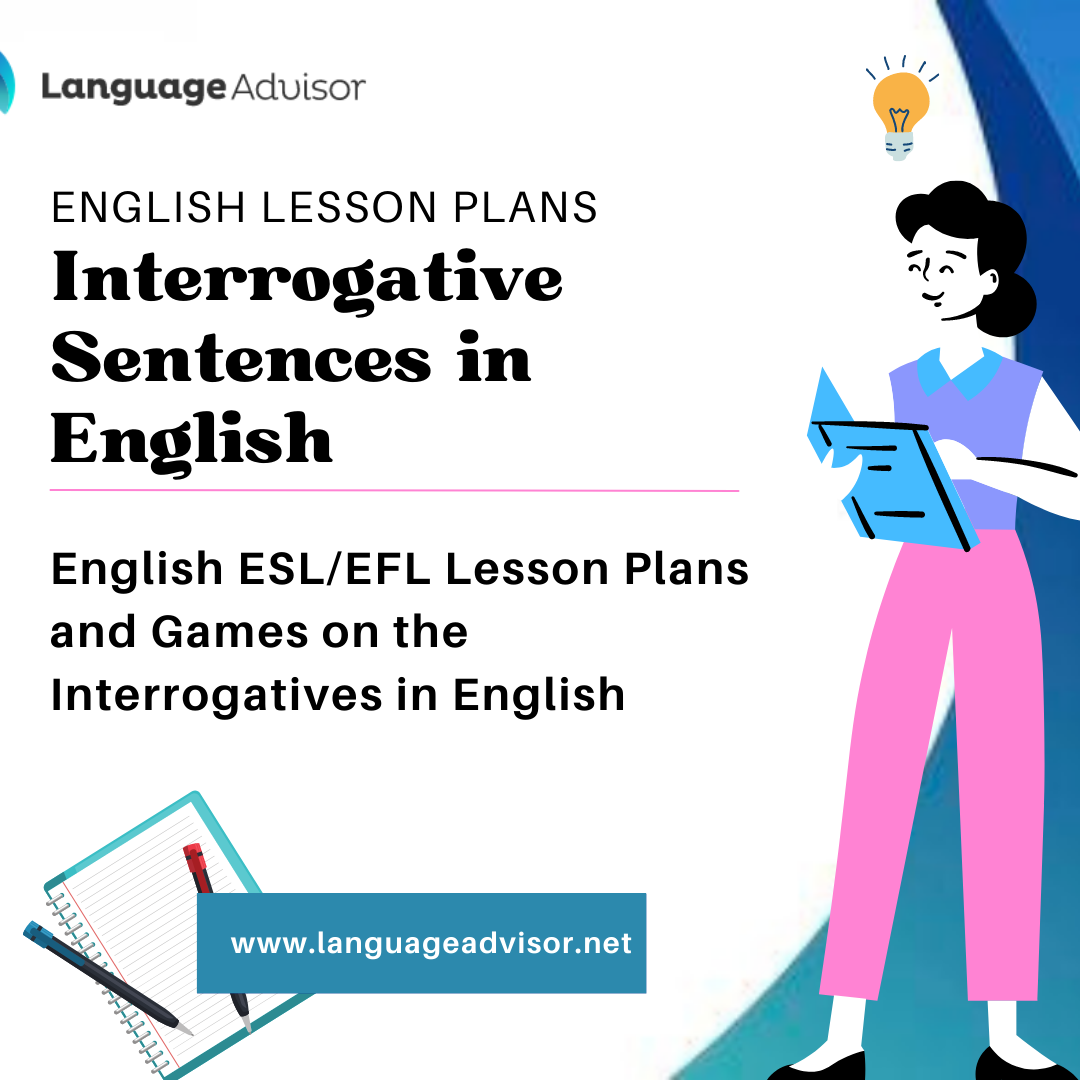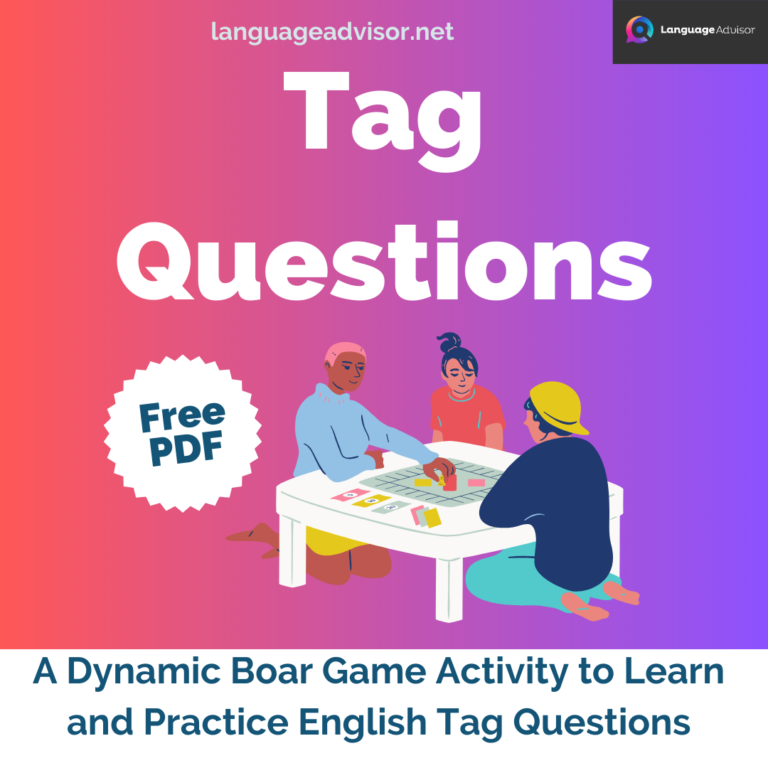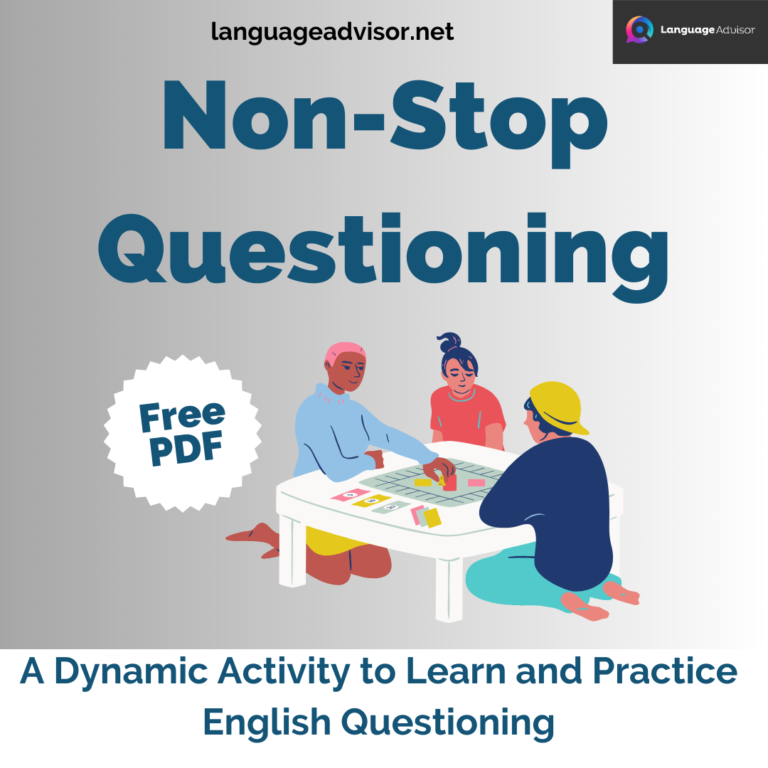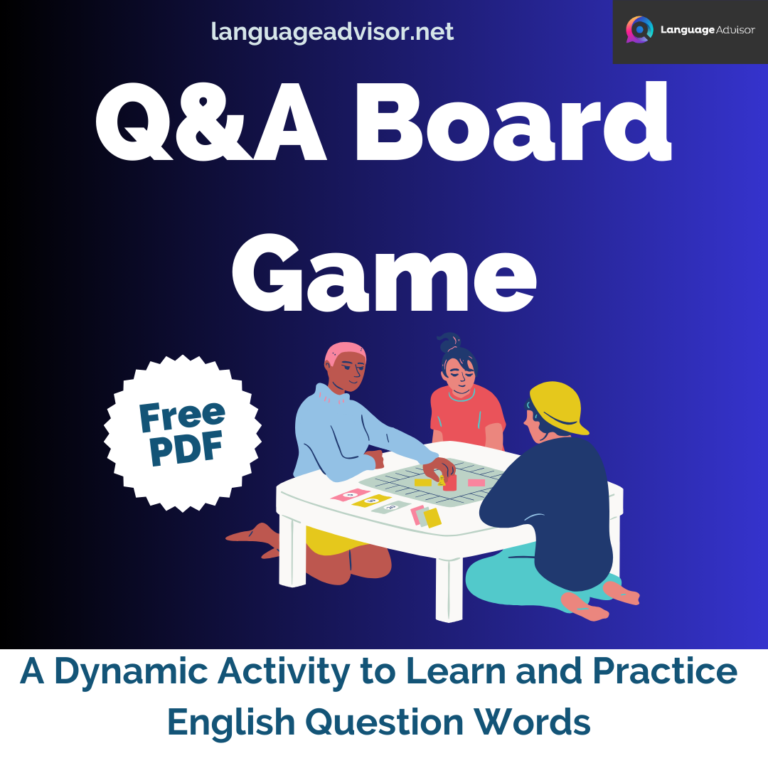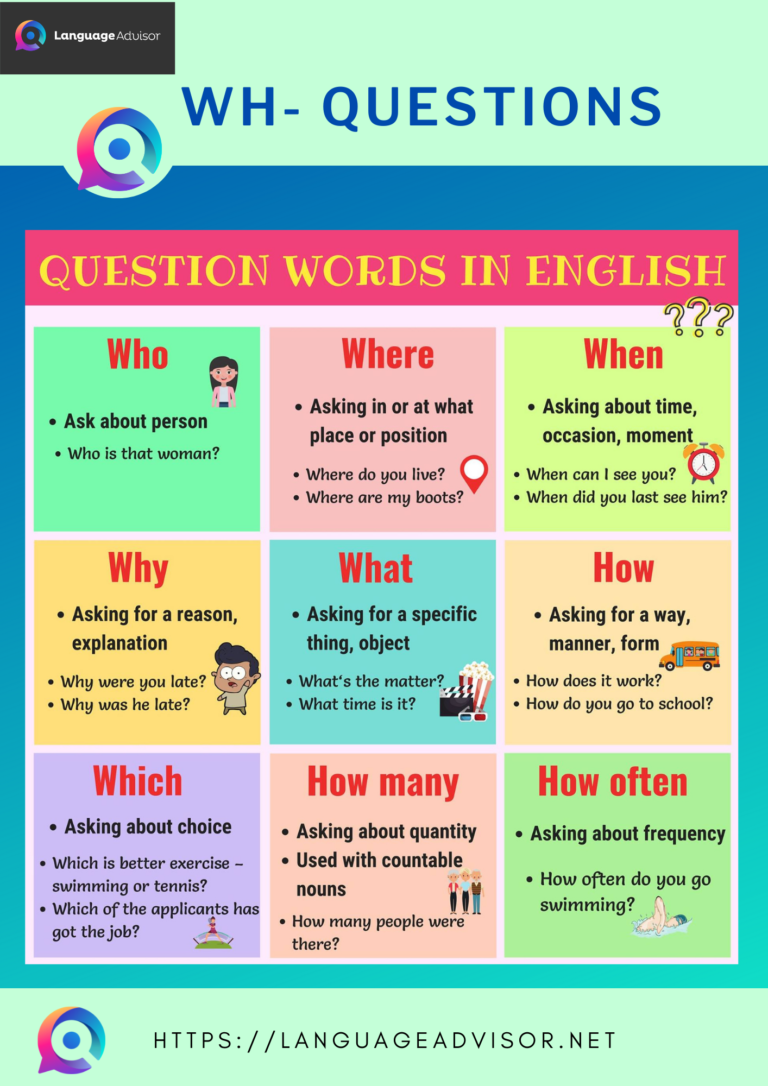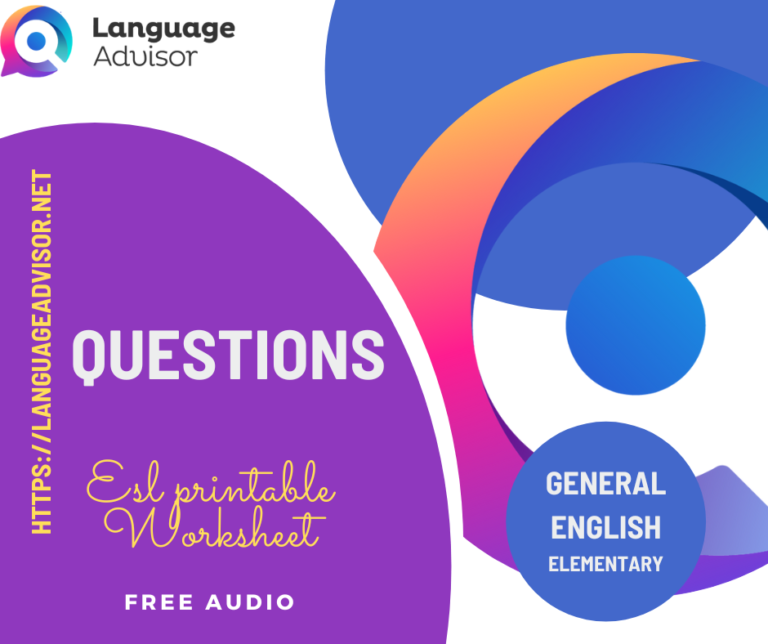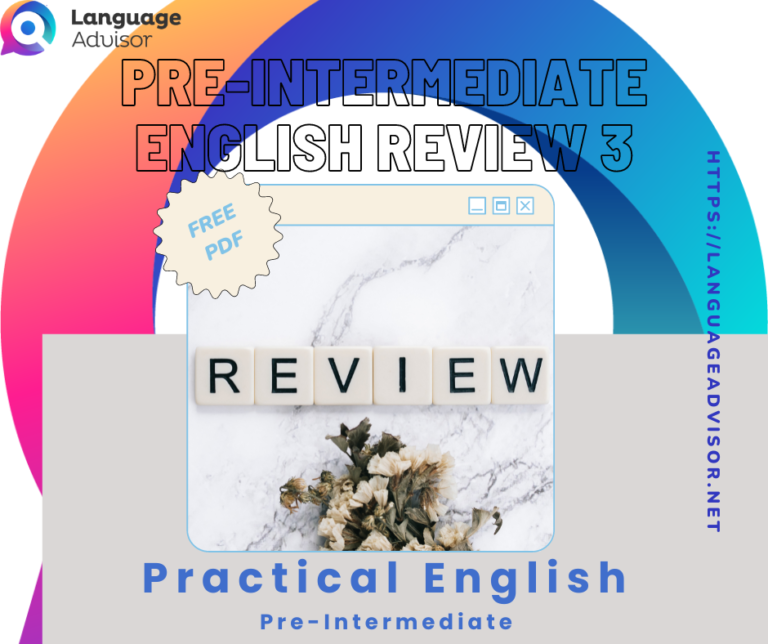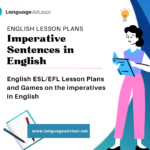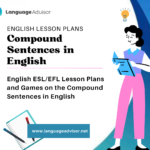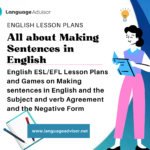Interrogative Sentences in English. English ESL/EFL Lesson Plans and Games on the Interrogatives in English
Interrogative Sentences in English

Lesson plans
Here you can find a wide range of full lesson plans to use in your classroom.
All of our lessons are designed around themes engaging and relevant to English ESL-EFL learners and can be used to complement your school curriculum, giving students an opportunity to develop their English language and skills in motivating and enjoyable ways.
These lesson plans focus on classroom games and activities oriented around meaningful practice of grammar items in English. The vast majority of the activities have been designed to be simple and easy to apply, without requiring much in the way of additional resources or materials. Wherever possible, games have been presented in a way that makes full use of any natural or genuine communicative aspects embodied in the grammar constructions, though while there is emphasis on understanding the grammar and its functional and communicative aspects, most of the games also highlight the importance of using the grammar accurately.
These lesson plans are intended as a starting point for teachers to adapt and build their own stock of in-class games and activities that can be applied relatively quickly and easily.





Interrogative Sentences in English
Interrogative Sentences in English: Here are six lesson plans on the English Interrogatives


Simple Interrogative Sentences
Objectives:
To have the students be able to recognize and construct simple interrogative sentences.
Presentation:
– Remind the students what a sentence or rather simple sentence is.
A simple sentence is a group of words that expresses a complete thought.
Ex. Sarah watches television.
– Teach the class what an Interrogative Sentence is.
An interrogative sentence asks a question. And note that an interrogative sentence always starts with a capitalized interrogative pronoun and ends with a question mark.
Ex. When will the Doctor arrive?
– There are six interrogative pronouns:
1. What =
2. When =
3. Why =
4. Where =
5. How =
6. Who =
– Explain to the class that there are 3 types of Interrogative Sentences:
1. Information Questions
2. Yes/No Questions
3. Tag Questions
Practice:
– Give the students three more examples of interrogative sentences to make sure that they understand what is being taught.
1. How many students does this school have?
2. Where are we going?
3. What is your name?
– Have the students practice writing interrogative sentences to make sure that they understand. They should write 7 to 10 interrogative sentences that they can then ask their neighbors.
– Once the students have a list of questions prepared have the kids start going around the classroom and asking one another questions for speaking and reading practice.
Homework:
– For homework have the students first think of a famous person (dead or alive) that they would like to meet, and then to write out a list of questions they would like to ask them if they could.







Information Questions
Objective:
To have the students be able to recognize and construct simple interrogative
sentences, and then be able to differentiate between the three types of
interrogative sentences.
Presentation:
– Remind the students what a sentence or rather simple sentence is.
A simple sentence is a group of words that expresses a complete thought.
Ex. Joe likes dogs.
– Remind the class what an Interrogative Sentence is.
An interrogative sentence asks a question. And note that an interrogative sentence always starts with a capitalized interrogative pronoun and ends with a question mark.
Ex. Who are you?
– Teach the class what an Information type of Interrogative Sentence is.
Information questions ask for a specific response, in order to get information.
Ex. How many rooms are in your house?
Practice:
– Give the students three more examples of information sentences to make sure that they understand what is being taught.
1. How much money do you make?
2. How many hours does it take to get to Bishkek?
3. What street does Mark live on?
– Have the students practice writing information questions to make sure that they understand. They should write 7 to 10 interrogative sentences that they can then share with the class.
– Once the students have a list of questions prepared compile their questions into one list of questions you will then write on the chalkboard. Each student should contribute one question and then once the questions are on the board the kids should then work on answering each one.
Homework:
– For homework have the students finish the above task started in class.







Yes/No Questions
Objective:
To have the students be able to recognize and construct simple interrogative
sentences, and then be able to differentiate between the three types of
interrogative sentences.
Presentation:
– Remind the students what a sentence or rather simple sentence is.
A simple sentence is a group of words that expresses a complete thought.
Ex. Matthew built a house.
– Remind the class what an Interrogative Sentence is.
An interrogative sentence asks a question. And note that an interrogative sentence always starts with a capitalized interrogative pronoun and ends with a question mark.
Ex. Why do you go to school?
– Teach the class what about Yes/No types of Interrogative Sentences. Yes/No questions are answered with a “yes” or “no” response. “Yes” indicates a positive response. “No” indicates a negative response.
Ex.
Question: Do you work?
Response: Yes, I am a teacher.
Question: Do you like being a teacher.
Response: Yes, I do.
Practice:
– Give the students three more examples of Yes/No questions to make sure that they understand what is being taught.
1. Are you a student?
2. Do you live here?
3. Is your name Kate?
– If you think your students are capable of it, try to play the game “20 questions” with your class.
Give the class a general topic, which you have picked a specific noun from and then let them ask Yes/No questions to try to find out which word you chose in 20 questions or less.
For Example: Write famous actress on the board, and then think of Julia
Roberts.
Your students by only asking Yes/No questions have to try to say the name Julia Roberts before they have surpassed 20 questions.
– Have the students practice writing Yes/No questions to make sure that they understand. They should write 7 to 10 Yes/No questions that they can then share with the class
Homework:
– For homework have the students finish the above task started in class.







Tag Questions
Objective:
To have the students be able to recognize and construct simple interrogative sentences, and then be able to differentiate between the three types of interrogative sentences
Presentation:
– Remind the students what a sentence or rather simple sentence is.
A simple sentence is a group of words that expresses a complete thought.
Ex. Amy reads many books.
– Remind the class what an Interrogative Sentence is.
An interrogative sentence asks a question. And note that an interrogative sentence always starts with a capitalized interrogative pronoun and ends with a question mark.
Ex. Where do you work?
– Teach the class what about Tag types of Interrogative Sentences.
Tag questions occur when someone is unsure about the response to a question. A “tag” is placed at the end.
Ex. You are a taxi driver, aren’t you?
Practice:
– Give the students three more examples of Tag questions to make sure that they understand what is being taught.
1. You live in America, don’t you?
2. You can drive, can’t you?
3. You eat meat, don’t you?
– Have the students practice writing Tag questions to make sure that they understand. They should write 7 to 10 tag questions that they can then ask their neighbors.
– Have the kids practice the Tag questions with one another until class time runs out.
Homework:
– For homework have the class give 3 examples for each of the 3 kinds of Interrogative sentences: Information Questions, Yes/No Questions, and Tag Questions, this will help prepare them for the next lesson and will also serve as a nice review of the past few lessons.







Practice with all 3 types of Questions
Objective:
To have the students be able to recognize and construct simple interrogative sentences, and then be able to differentiate between the three types of interrogative sentences.
Presentation:
– Remind the students what a sentence or rather simple sentence is.
A simple sentence is a group of words that expresses a complete thought.
Ex. Andrew listens to music.
– Remind the class what an Interrogative Sentence is.
An interrogative sentence asks a question. And note that an interrogative sentence always starts with a capitalized interrogative pronoun and ends with a question mark.
Ex. What time is it?
– Remind the class about the three types of Interrogative Sentences.
1. Information questions ask for a specific response (to get information).
Ex. How many pairs of shoes do you have?
2. Yes/No questions are answered with a “yes” or a “no” response.
Ex. Do you play volleyball?
3. Tag questions occur when someone is unsure about the response to a question. A “tag” is placed at the end.
Ex. You are a Doctor, aren’t you?
Practice:
– Give the students a list of questions and have them identify if they are Information, Yes/No, or Tag questions. This can be done as an individual activity for the students, a competition, or a group review on the board.
1. Do you have a family? = Yes/No
2. What do you do for a living? = Information
3. You play tennis, don’t you? = Tag
4. Where do you want to work? = Information
5. You have red hair, don’t you? = Tag
6. Are you tired? = Yes/No
7. What year were you born? = Information
8. Is this your house? = Yes/No
9. You can play the piano, can’t you? = Tag
10. Are you married? = Yes/No
11. How many siblings do you have? = Information
12. This is your car, isn’t it? = Tag
Homework:
– For homework have the class give 3 examples for each of the 3 kinds of Interrogative sentences: Information Questions, Yes/No Questions, and Tag Questions, this will be their final assignment for the question based lessons.







What?
Objective:
Finding out more about people or thing
Presentation:
This is a simple rotation game designed to practice application of “What” questions for information.
Practice:
Basically, students take turns answering and then asking a “what” question directed at different kinds of information. The students as a group get a point for each successful different “what” question and another point for a correct answer form. If a student repeats a question asked by someone else, the round is over and points are tallied.
The teacher can repeat the activity to challenge the students to come up with more questions and therefore more points. The game could look like this:
Teacher: Frank, what time is it?
Student 1: It’s 2 o’clock. Jenny, what color is your sweater?
Student 2: It’s blue. Billy, what day is it today?
Student 3: It’s Thursday. Steven, what food do you like?
Student 4: I like ice cream. Sarah, what is on your desk?
Student 5: There’s a pencil on my desk. Judy, what subject do you like?
Student 6: I like Math. Tom, what pet do you have?
Etc.
This game is useful for generating a range of “what” questions that can lead into explanation and practice of other (more specific) ‘wh’ questions (such as “where?”, “who?”, “whose?”, “why?”, “when?” and “how?”). It can also form a framework for introducing the question element “which” (used to indicate differences between two or more people or things when the range of possible answers is relatively small, compared to a wide range of possible answers for the more general “what?”)





Interrogative Sentences in English
Interrogative Sentences in English: Also Check out these resources on the English Interrogatives






